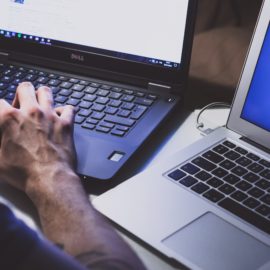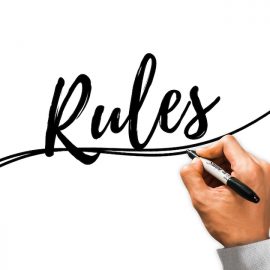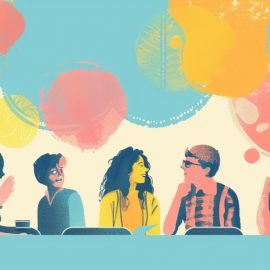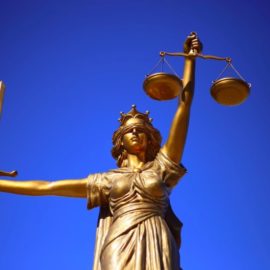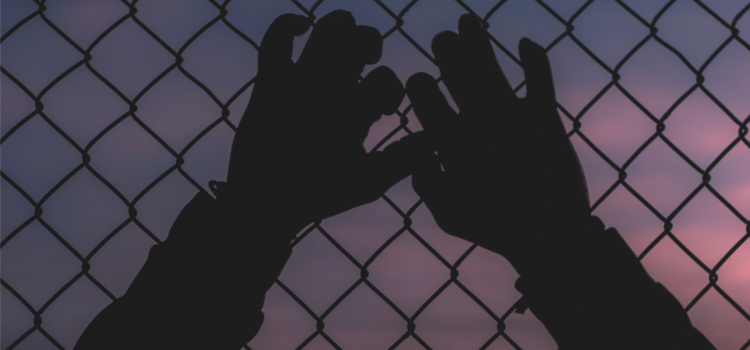
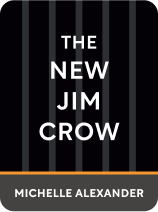
This article is an excerpt from the Shortform summary of "The New Jim Crow" by Michelle Alexander. Shortform has the world's best summaries of books you should be reading.
Like this article? Sign up for a free trial here .
What is Jim Crow racism? Are Jim Crow and racism the same thing?
Jim Crow racism is a type of subtle racial discrimination. Laws are set up to reinforce institutions that disadvantage non-whites without explicitly being against any race.
Read on to understand Jim Crow racism and its effects.
Jim Crow Racism Is Subtle
In the last chapter, we saw how black people were systematically targeted in the criminal justice system, and the courts made litigation on racial discrimination extremely difficult.
This alone is massively destructive, but the penalties imposed on felons after release from prison entrenched the New Jim Crow system. As Alexander repeats throughout the book, felons have important civil rights stripped away. By making housing and finances difficult for convicted felons, they became far more likely to reoffend. And because they had limited ability to vote or serve on juries, their ability to influence the system was neutralized.
These were likely well-reasoned laws passed to disincentivize drug use, but they have a crippling effect on the ability of the subjugated to buck the system. Furthermore, when accepting a plea bargain, offenders may not be aware of the rights they’re giving up.
Here is a summary of the penalties that ex-felons face, which is a key component of Jim Crow racism.
Housing Penalties
Housing increases the rate of employment and decreases recidivism.
Public housing can evict not only felons, but also any tenant even believed to be engaged in criminal activity or having prior arrests, regardless of convictions.
- Obviously this is aggravated by the greater rate of arrests of colored people.
- Agency ratings and funding consider effectiveness of applicant screening as a factor.
- Tenants are held liable for behavior of their children and guests, even without knowledge of the activity.
- For instance, grandmothers can be evicted if their grandchildren smoke weed in the parking lot.
All this makes families reluctant to allow their criminal relatives to stay with them, which pushes criminals into homelessness.
- 30-50% of people under parole in SF/LA were homeless.
Employment Penalties
Criminals are already disadvantaged in finding employment, with most dropping out of high school and being illiterate.
40 states require parolees to maintain employment, or possibly be sent back to prison. But almost all states allow private employers to discriminate on past criminal convictions or arrests. Licensing for some professions prohibits felons.
The professions that are less customer facing and most willing to hire felons – construction, manufacturing – are disappearing due to outsourcing.
Felons may have their driver’s licenses expired or suspended, which exacerbates the job search and depletes the number of reasonably accessible jobs. They might spend more money getting to work than they earn.
Over 33% of young black men in the US are unemployed; 65% of young black male dropouts are unemployed.
- Keep in mind poverty and unemployment statistics usually don’t include incarcerated people, so the true jobless rates may be underestimating by 20%.
Ironically, activism to remove questions about criminal history from job applications may backfire. Without this explicit information, employers may discriminate against non-criminal black people using proxies for criminality, like receipt of public assistance, gaps in work history – or effectively treat all black men as though they have criminal records.
Financial Penalties Enhance Jim Crow Racism
Even if felons do land a job, they’re saddled with mandatory fees, such as jail booking fees, jail per diems, public defender application fees, payments to probation departments, drug testing fees. They may also be subject to child support.
In addition, late fees and payment plan fees but people further into the hole.
In addition, many states suspend driving privileges for missed debt payments, which further complicates employment.
In addition, Clinton signed a 5-year limit on welfare and a permanent bar on drug-related felony convictions.
Thus, workers can have 100% of their paychecks garnished.
Perversely, in some jurisdictions, people may choose to go to jail to reduce their debt burdens. This further reinforces the penalties of jail time.
Perversely, inmates work in prison, and the government and employers benefit from their low-paid labor, recalling the antebellum practice of imprisoning former slaves to work off their debts.
Naturally, to escape the financial trap, many convicted felons turn to crime.
Voting Penalties
Nearly all states prohibit felons from voting while incarcerated. Most states withhold right to vote to parolees. In 9 states, ex-felons must apply to have voting rights restored, typically after they pay all fines.
- In contrast, half of Europe allow all prisoners to vote.
Furthermore, ex-offenders may be reluctant to vote because of fear of attracting attention with the government.
Others are told by parole officers that they’re not allowed to vote.
Naturally, many ex-felons never regain the right to vote.
- Theoretically, these votes may have influenced very close elections.
Insidiously, new prisons occur in mostly white, rural areas, which benefit from inflated population totals and thus representation in state government.
This keeps Jim Crow racism in place by not giving the most affected a chance to vote.
Psychological Penalties and Stigma
Ex-offenders may never escape the prison label, face social exile, and feel constantly like the system is weighed against them. This can weigh on them and eventually deplete all hope.
Young black people may be told “you’ll amount to nothing, just like your father,” which implies a deep inherited weakness. “If nothing is expected of a people, that people will find it difficult to contradict that expectation.”
To avoid shame, people affected by incarceration (eg family members) stay silent, avoiding social discussion. Thus they underestimate the extent of incarceration, deepen the isolation of ex-offenders, and limit healing and mobilization of social action.
Naturally, ex-offenders may seek those who understand them – other criminals – and join gangs.
Yet if black people really feel shame, why is gangsta culture celebrated?
- Alexander argues that when people feel hopelessly stigmatized, they embrace the identity as the only viable route to self-esteem. Like “black is beautiful,” this neutralizes the sting and neutralizes the offense.
- This is an act of rebellion. “I’m seen as a criminal…so I’m gonna treat you like I am one. I’m gonna make you shake.”
- In popular media, gangsta life is celebrated by black people partially because they’re excited to see their own on TV.. Unfortunately it perpetuates racial stereotypes for both black and non-black viewers. Draw an analogy to black minstrel shows.
- Unfortunately, unlike “black is beautiful,” celebrating criminality is self-defeating and perpetuates a disadvantaged position.

———End of Preview———
Like what you just read? Read the rest of the world's best summary of Michelle Alexander's "The New Jim Crow" at Shortform .
Here's what you'll find in our full The New Jim Crow summary :
- How the US prison population increased 10x in 30 years because of harsh drug policies
- How being "tough on crime" was deeply motivated in discrimination against black people
- Why being convicted for a crime is essentially a life sentence of poverty and return to prison


